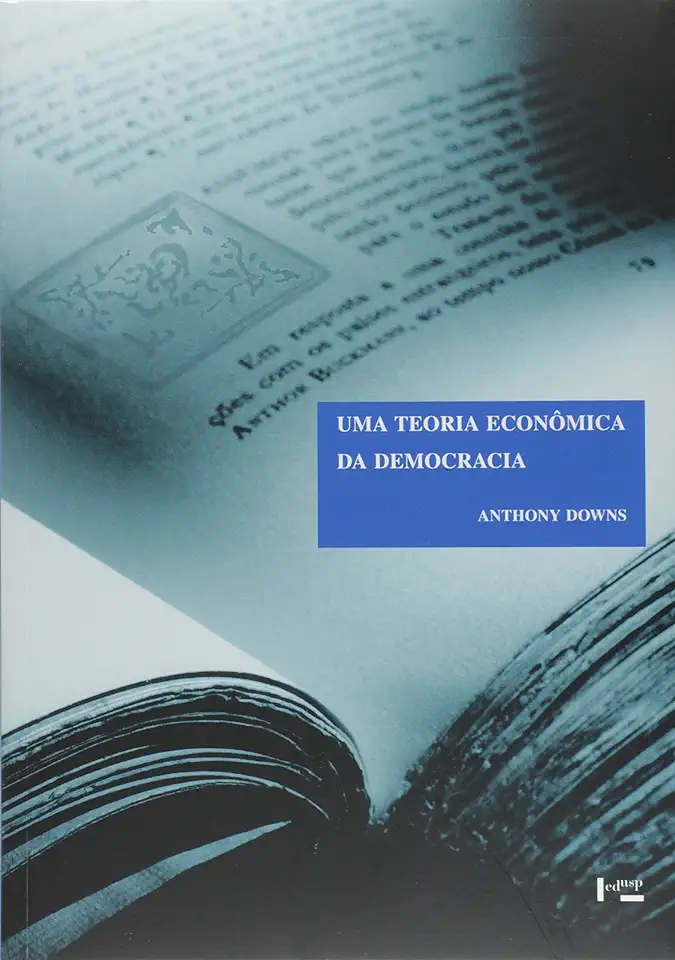
An Economic Theory of Democracy - Anthony Downs
An Economic Theory of Democracy: A Comprehensive Summary
Introduction
In his groundbreaking work, "An Economic Theory of Democracy," Anthony Downs presents a comprehensive and insightful analysis of the political process through the lens of economic theory. Downs argues that voters, politicians, and political parties behave rationally in pursuit of their own self-interest, and that this behavior has profound implications for the functioning of democracy.
Rational Voters and the Median Voter Theorem
Downs begins by examining the behavior of voters in a democratic system. He argues that voters are rational actors who seek to maximize their own utility, just as they do in economic markets. However, unlike in economic markets, voters do not have perfect information about the candidates and policies they are choosing between. Instead, they must rely on limited information and make decisions based on their perceptions and beliefs.
Downs's seminal contribution is the median voter theorem, which states that in a two-party system, the winning candidate will be the one who appeals to the median voter - the voter who is exactly in the middle of the ideological spectrum. This is because the median voter is the swing voter who can decide the outcome of the election. As a result, candidates will compete for the median voter's support by adopting policies that appeal to their preferences.
Political Parties and Party Competition
Downs then turns his attention to political parties and party competition. He argues that political parties are organizations that seek to win elections and gain control of government. Parties do this by mobilizing voters and providing them with information about candidates and policies. In order to win elections, parties must appeal to a broad range of voters, which means they must adopt moderate policies that appeal to the median voter.
Downs's analysis of party competition highlights the importance of party platforms and campaign promises. He argues that parties use platforms to communicate their policy positions to voters and to differentiate themselves from their opponents. Campaign promises are used to persuade voters that the party will implement policies that benefit them. However, Downs also warns that parties may not always keep their promises once they are in power, as they may face constraints and pressures that make it difficult to do so.
Interest Groups and Political Influence
Downs also examines the role of interest groups in the political process. He argues that interest groups are organizations that seek to influence government policy in order to benefit their members. Interest groups do this by lobbying elected officials, providing campaign contributions, and mobilizing their members to vote.
Downs's analysis of interest groups highlights the importance of political influence and the role of money in politics. He argues that interest groups with more resources and greater access to decision-makers have a greater ability to influence policy. This can lead to policies that benefit special interests at the expense of the broader public interest.
Conclusion
In conclusion, "An Economic Theory of Democracy" provides a comprehensive and insightful analysis of the political process through the lens of economic theory. Downs's rational choice approach sheds light on the behavior of voters, politicians, political parties, and interest groups, and highlights the importance of factors such as the median voter theorem, party competition, and political influence. This book is a must-read for anyone interested in understanding how democracy works and the challenges it faces in the modern world.
Why You Should Read This Book
"An Economic Theory of Democracy" is a seminal work in the field of political science that has had a profound impact on our understanding of how democracy works. Downs's rational choice approach provides a powerful framework for analyzing the behavior of political actors and the dynamics of political competition. This book is essential reading for anyone interested in understanding the political process and the challenges facing democracy in the 21st century.
Here are a few reasons why you should read "An Economic Theory of Democracy":
- It provides a comprehensive and insightful analysis of the political process through the lens of economic theory.
- It introduces the median voter theorem, which is a fundamental concept in the study of democracy.
- It examines the role of political parties and party competition in the democratic process.
- It analyzes the influence of interest groups and the role of money in politics.
- It offers a thought-provoking perspective on the challenges facing democracy in the modern world.
If you are interested in understanding how democracy works and the challenges it faces, then "An Economic Theory of Democracy" is a must-read.
Enjoyed the summary? Discover all the details and take your reading to the next level — [click here to view the book on Amazon!]